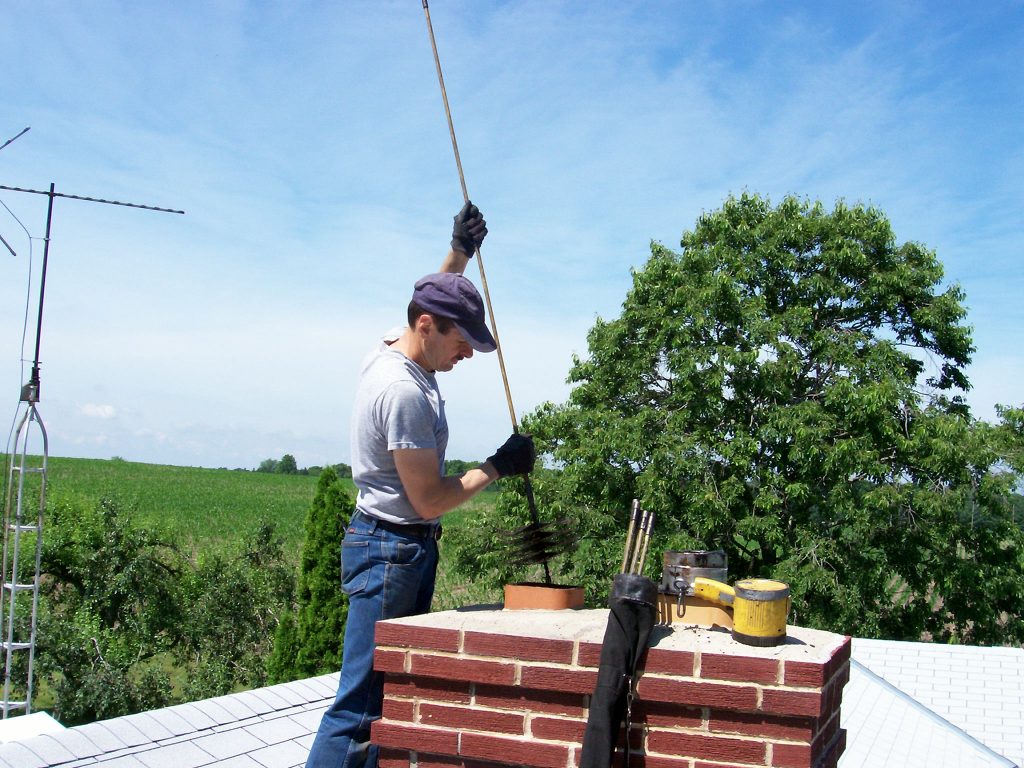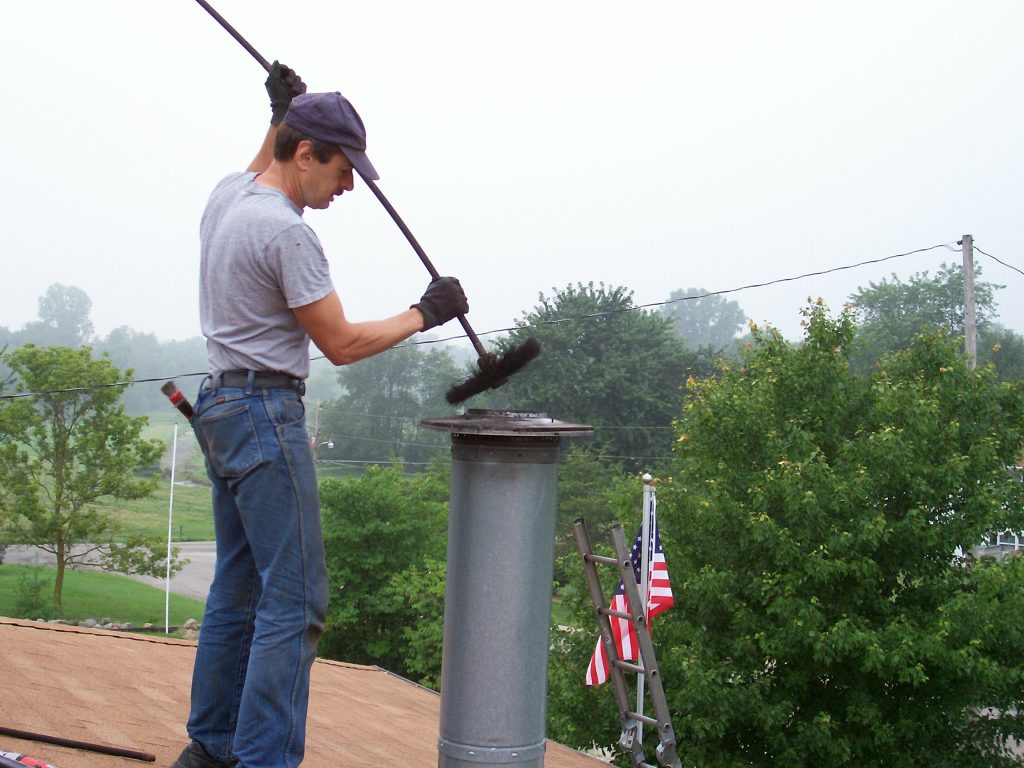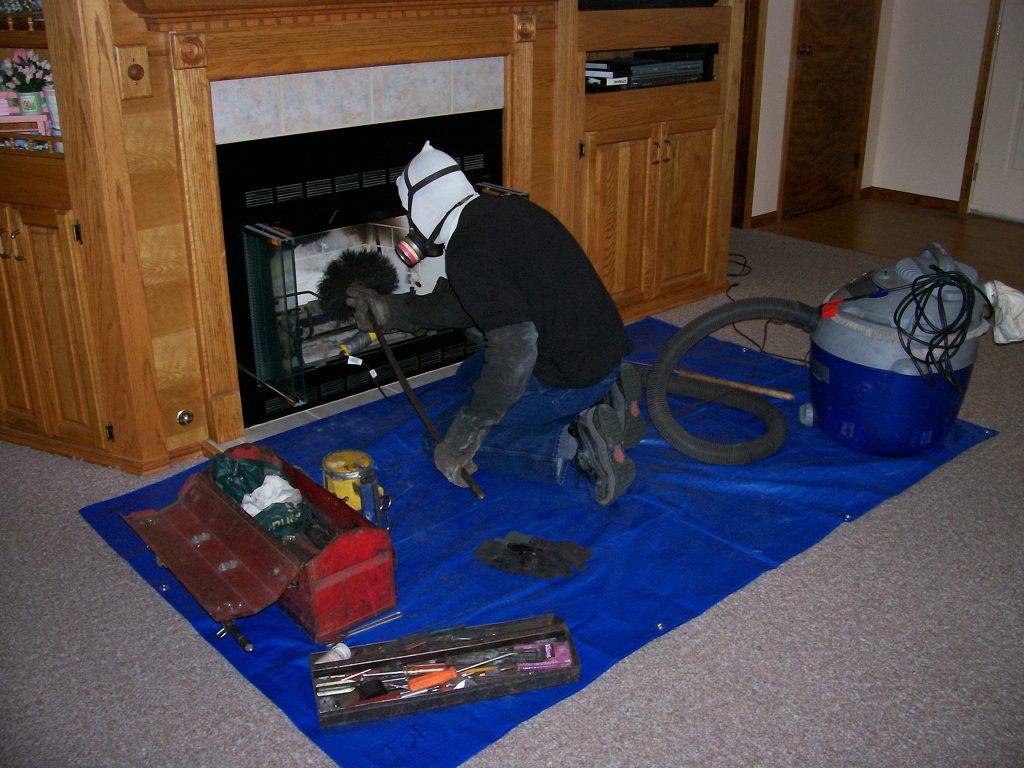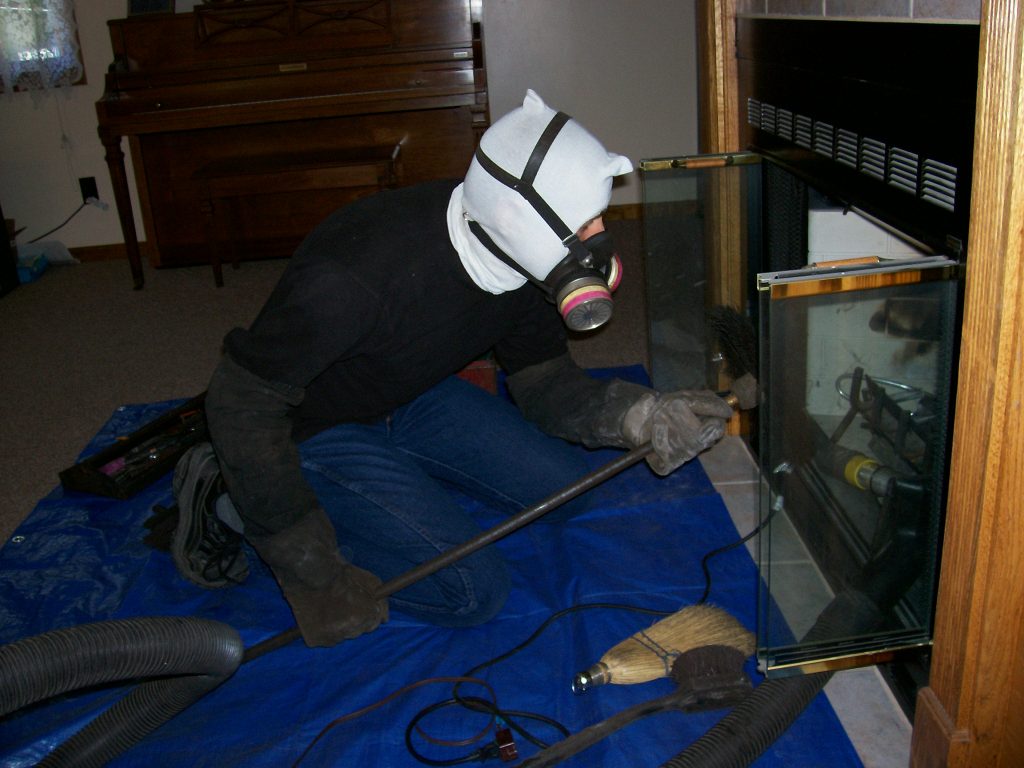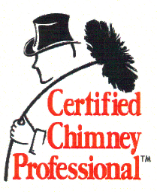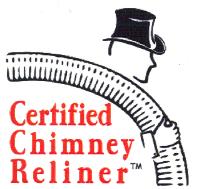- Masonry Chimneys
- Prefabricated Metal Chimneys
Modern Chimney & Duct Cleaning specializes in cleaning both masonry and prefabricated metal chimneys. We have the experience and equipment to do a thorough cleaning job and make your chimney safe without damaging it. We are chimney fire prevention experts, and can advise you on how to safely operate your wood burning fireplace or stove.
- We use protective drop cloths to keep soot off your carpet and floors, and a high powered vacuum with special fine particle Hepa filters to collect dust. Your fireplace gets clean – Your house stays clean.
- Click on Pictures to Enlarge
Why do I need my chimney cleaned?
We use protective drop cloths to keep soot off your carpet and floors, and a high powered vacuum with special fine particle Hepa filters to collect dust. Your fireplace gets clean – Your house stays clean.
When wood burns it produces unburned byproducts of incomplete combustion. They travel up the chimney in the form of smoke, some going out into the atmosphere (pollution), and the rest collect on the inside of the chimney when the gases cool as “creosote”.
The normal temperature inside a chimney when exhausting wood smoke is 300 to 500 degrees. However, when dangerous levels of creosote build up in the flue, (this level may be as small as 1/8 inch) and a chimney fire occurs, the temperature can increase to 1500 – 2000 degrees.
These dangerously high temperatures can cause flue liners to crack or shatter, metal chimney liners to buckle or split open, chimneys may split open, and the thermal shock created by the instant jump in temperature can blow bricks out of a chimney.
With the integrity of the chimney compromised there is a chance that your home could catch on fire. Many times chimney fires can start in the attic where you don’t see it until it’s too late.
Chimney fires can also cause flaming creosote to fly out of your chimney top and on to your roof or adjacent trees.
The best way to prevent a chimney fire and damage to your chimney or home is to have your chimney cleaned. The National Fire Protection Association, (NFPA) recommends that if you use your chimney you should have it inspected yearly by a professional, and cleaned if necessary.
Facts
- If you have a chimney fire and your home does not catch on fire it does not necessarily mean that it’s safe to continue to use your fireplace or wood stove. A chimney fire can damage the interior of the chimney, compromising its ability to withstand the next chimney fire. Many house fires related to chimney fires were caused because there had been multiple fires in the chimney. The chimney should be inspected for damage by a professional chimney sweep immediately after a chimney fire.
- Burning dry wood and hot fires does not mean that you do not need to have your chimney cleaned. You may not need to have it cleaned as often, but it will still need to be cleaned. It is better to be safe than sorry and have a professional sweep inspect your chimney to determine the frequency that it will need to be cleaned. Because exterior chimneys are colder than a chimney surrounded by the warmth of a house, creosote will build up faster in an exterior chimney.
- Using chemicals on your wood fire,(sprays, powders, sweeping logs, salt, potato peels, whatever), is not a substitute for cleaning your chimney. Although some of these chemicals can convert more dangerous forms of glazed or baked on creosote to a less volatile form that is easier to remove, or may reduce the amount of creosote buildup in the chimney, the chimney still needs to be “swept” with a stiff brush to properly remove creosote.
- We have passed the examination and met all requirements to become a Certified Chimney Professional and Certified Chimney Reliner.
- For more information on this visit www.certifiedchimneyprofessionals.com
For more information on this visit www.certifiedchimneyprofessionals.com

